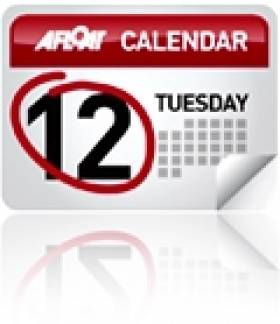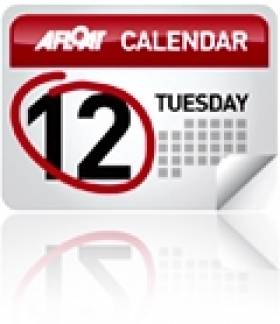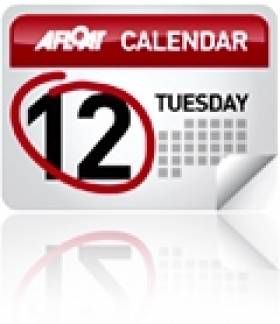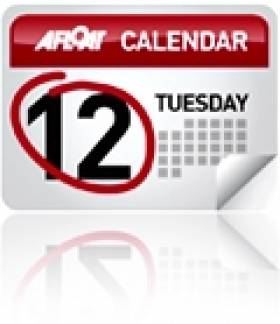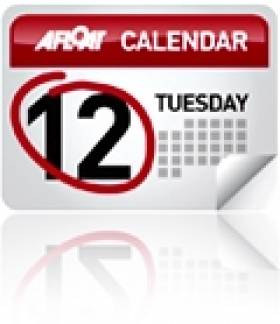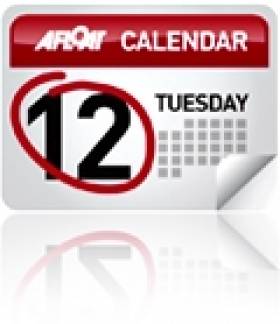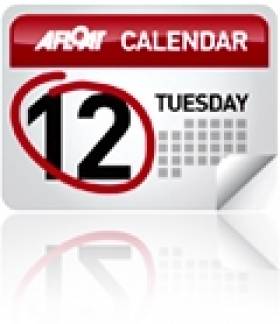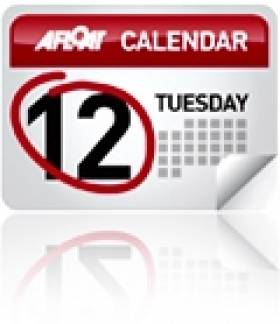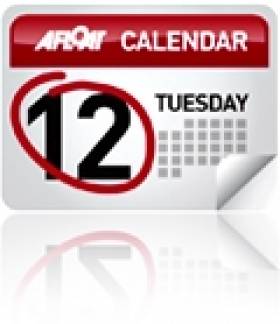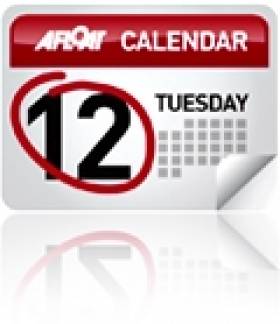Displaying items by tag: Afloat Calender Dates
Lecture: Mutiny & Murder on the Earl of Sandwich
#Lecture - "Mutiny & Murder on the Earl of Sandwich", a public lecture by Peter Brady marks the final lecture season organised by Baltimore Maritime Centre which is held in Dublin.
The illustrated talk is take place in Poolbeg Yacht & Boat Club in the heart of the working port on Thursday 16th April at 8pm. Entry is €5 and is aid of the RNLI.
The lecture is a tale of piracy and will relive the fateful voyage of The Earl of Sandwich" which sailed from Tenerife November 1765 with a valuable cargo of wine, silk and other goods. Also told will be how the story is closely linked with Cork, Carlow, Kildare, Wexford, and numerous Dublin locations, including Ringsend and the Muglins off Dalkey.
In the 18th century, conditions of pay and work were poor; injury and ill health were a constant risk; and life expectancy was no more than 45 years.
Such was the life of a merchant seaman as the Earl of Sandwich departed London for the Canary Islands on 10 August 1765.
At Tenerife, the ship was laden with wine, silk and other goods, including a rich cargo of coin, which ultimately proved too much of a temptation for some.
Peter has been a sports diver in 1980 and with links in his interest of maritime history to his early dives on the wreck of the Tayleur at Lambay Island.
His research into the 'Earl of Sandwich' began with the stories he heard of how pirates were once hung on the Muglins. The information he has gathered adds new insights into the tale of the ship, its crew and its passengers.
The winter lectures series will resume in the same venue of Poolbeg but not until the Autumn.
Lecture: The Story of A Dublin Pilot
#LectureDublinPilot – The Story of a Dublin Port Pilot, that's the title of the next lecture to be held in National Maritime Museum of Ireland in Dun Laoghaire next Thursday.
The two-hour lecture starts at 8:00 pm and will be presented by Captain Jim Kennedy, a retired Pilot from Dublin Port. Kennedy will talk about the interesting, exciting and amusing account of life guiding the great ships into Dublin Port in all weathers.
Over the years on Afloat.ie we have mentioned the port's current pair of Safehaven Marine built Interceptor 42 class pilot cutters as they head out into Dublin Bay to transfer pilots to and fro from ships.
The names given to the Youghal built cutters Liffey and Camac and others have over the years been named after the famous river and tributaries.
Camac and Liffey were launched into service as part of a new suite of port work related vessels that featured in Afloat magazine (May 2009) issue. In addition for a photo of Camac as she prepares to come alongside a container vessel departing Dublin Bay, click here.
Lecture Information: Admission is €10.00 (payable at door from 7.30pm) followed by the talk at 8.00pm. Bookings can also be made be email: [email protected] or Tel: (01) 2143 964
For further information in general about the Maritime Institute of Ireland's museum on Haigh Terrace, Dun Laoghaire which has also a gift shop and café visit: www.mariner.ie
WSS Lecture: Shipping in Cork Harbour in the 1970’s
#WSSlecture – The Cobh branch of the World Ship Society (WSS) continues its 2015 winter monthly meetings programme with the lecture:Shipping in Cork Harbour in the 1970’s
The lecture to be presented by Oliver Hawes (starting at 20.00) takes place as usual in the Commodore Hotel, Cobh.
Further presentations are held (on the third Tuesday of each month) until this May.
Presentations are made during the winter months while in the summer period is spiced with visits to ships in the port.
Cobh's WSS branch is the only branch of the society in the Republic of Ireland and this year they celebrate 10 years having been established in 2005.
Over that time Cobh WSS have also made port tour visits to the UK, Poland and Sweden.
The WSS was founded in 1946 and for further details about this branch click HERE.
#Lecture: - Baltimore Maritime Centre's 2015 Winter Lecture Series presents 'Stay In the Boat: How Not to Lose the Run of Yourself Crossing the Atlantic'
The lecture to be presented by Theo Dorgan and held on Thursday 5 February starts at 20:00. The venue is the Poolbeg Yacht and Boat Club, Ringsend, Dublin.
All are welcome. Admission of €5 in aid of the RNLI.
Theo Dorgan is a poet, novelist, translator, editor and broadcaster. A late vocation sailor, he has also written two non-fiction books recounting Atlantic crossings.
In 'Sailing for Home', he tells how he and three others sailed the 70ft schooner, Spirit of Oysterhaven', from Antigua to Kinsale.
Some years later, in a similar-sized boat but with, understandably, a bigger crew, he made the crossing from Chile to South Africa, telling that story in 'Time On The Ocean', a voyage from Cape Horn to Cape Town.
Dorgan is a Shoreline supporter of the RNLI, and always glad to help with fundraising and with publicising their much-admired work.
He will read extracts from both of his sailing books, from his novel which is set at sea in the Mediterranean. Also to be read from his new collection of poems, 'Mine Bright Shiners', in which the sea features prominently.
Transport Ireland 2015: One Month Countdown to Conference
#TransportIreland – Transport Ireland 2015, the annual conference now in its eight year running represents the transport sector in this country and is to open a month from today, 25 March.
The conference is to be held in the Chartered Accountants House, 47-49 Pearse Street, Dublin and between the hours of 9am to 2pm.
The venue (located close to Pearse St Railway Station) is to bring together key players from throughout Ireland, north and south, to focus on important issues facing transport policy-makers and senior managers in the sector.
An expert speaker panel will look at key issues including:
• Transport policy priorities International outlook for transport sector
• Public transport investment The Dublin port masterplan
• Exploring travel behaviour
• Strategic framework for investment in land transport Understanding customer needs
• Compressed natural gas as a transport fuel
Conference speakers are: Paschal Donohoe, TD, Minister for Transport, Tourism and Sport, José Viegas, Secretary General, International Transport Forum, Dr. Matthew Niblett, Secretary-General, Independent Transport Commission, Enda Treacy, Senior Manager, EY, Dan FitzPatrick, Strategic Planning Manager,CNG, Gas Networks Ireland Anne Graham, Chief Executive Officer, National Transport Authority, Eamonn O'Reilly, Chief Executive, Dublin Port and Jim Meade, Director, Railway Undertaking, Irish Rail
To view the full conference programme, contact details and to how to register, click HERE
Fundraiser Lecture: Sailing the World - The First Leg Ireland to New Zealand
#LectureSailing - Sailing the World: The First Leg Ireland to New Zealand will be a fascinating fundraiser lecture held in aid of the National Maritime Museum of Ireland, Dun Laoghaire.
The talk presented by Pat & Olivia Murphy is next Wednesday 25 February.
The Murphy's will recount all the drama as the intrepid voyagers experienced many an adventure. The presentation will also be accompanied by a slide-show lavishly illustrated with high-quality photos.
The First Leg – Ireland to New Zealand starts with the voyage across the Atlantic, the transitting of the Panama Canal, turtle-watching and the crocodiles!
In addition to coveraing their adventures to the Galapagos Islands, Polynesia & The Cook Islands and encountering a storm on the Tasman Sea.
Lecture Information: Admission is €10.00 (payable at door from 7.30pm) followed by the talk at 8.00 pm
Bookings can also be made be email: [email protected] or Tel: 01 2143 964
Tea and Coffee will be served before and after the talk.
For further information in general about the Maritime Institute of Ireland's museum on Haigh Terrace, Dun Laoghaire which has also a gift shop and café visit: www.mariner.ie
WSS Lecture: The Galway Hooker – History, Building & Sailing
#WSSlecture – The Cobh branch of the World Ship Society (WSS) continues its 2015 winter monthly meetings programme with the lecture: The Galway Hooker – History, Building and Sailing.
The lecture presented by Kevin Twomey.is next Tuesday 17 February (starting at 20.00) and takes place as usual in the Commodore Hotel, Cobh.
Further presentations are held (on the third Tuesday of each month) until this June.
Presentations are made during the winter months while in the summer period is spiced with visits to ships in the port.
Cobh's WSS branch is the only branch of the society in the Republic of Ireland and this year they celebrate 10 years having been established in 2005.
Over that time the branch have made tours to include visits to Poland, Sweden and the UK.
For further details about the WSS organisation founded in 1946, click HERE.
Lecture: ‘Asgard’ Ireland’s Most Historic Yacht 1905-2015
#LectureAsgard - Baltimore Maritime Centre's 2014/2015 Winter Lecture Series presents 'Asgard' Ireland's most historic yacht 1905 to 2015
The lecture by Pat Murphy, boating historian and round-the-world yachtsman will be held on Thursday 5 February at 20:00 in Poolbeg Yacht and Boat Club, Ringsend, Dublin.
All are welcome. Admission of €5 in aid of the RNL
Pat will take you on the voyage of Asgard from her launch in 1905, her 23 day voyage to collect guns and ammunition for the Irish Volunteers and the landing of them at Howth July 1914.
The illustrated talk will cover her conservation today in Collins Barracks in the National Museum of Ireland.
After an absence of 47 years she was bought by the Irish Government in 1961 and from then, until being de-commissioned in 1979.
She gave a variety of Irish sailors and would be sailors experiences that they most likely might otherwise never have had.
"We have to restore her and put her back in the water." "No! We should conserve her and put her on public display in the National Museum." This was the argument that was being played out by various groups.
The conservationists won the argument and the talk will cover the full conservation process that took almost six years to complete.
The part played by 6 local volunteers in putting the finishing touches to the project is also described in detail.
Shippax Ferry Shipping Conference 2015 Brings Exhibitors to Sea
#Shippax2015 - Shippax Ferry Shipping Conference 2015 hosted in Rotterdam (April 21-23) will be held on board P&O Ferries Pride of Rotterdam and PDMS will be among the official exhibitors.
The Ferry Shipping Conference now in its 13th year, was founded and organised by Shippax and BOLT Consulting, one of the largest conferences in the ferry industry. Around 400 ferry shipping delegates are expected to attend from Europe and further afield.
The anticipated conference will cover commercial performance, industry insight and debates, and will feature exciting industry speakers and an exhibition with key industry players.
Glasgow based PDMS have recently expanded their ferry ticketing and reservations offering with their Compass ferry ticketing and reservations product, through their UK subsidiary, Professional Data Management Services (UK) Limited, who acquired certain parts of the business and assets of Maxima Information Group in September 2014.
The long-term client base of PDMS's ferry software is currently in use by Caledonian MacBrayne, Orkey Ferries, Pentland Ferries, Shetland Islands Council, Western Ferries and Ticket Hour.
Commenting on the news of PDMS' plans to promote Compass across the international ferry, David Stickland, Sales Director of PDMS said, "Having attended the 39th Annual Interferry Conference in Vancouver last year, we are particularly excited to be exploring further relationships at the 2015 Ferry Shipping Conference.
"Last year was an extremely positive year for us in terms of strategic growth and market positioning and this exhibition will provide us with the ideal platform from which to advance our Compass ferry ticketing and reservation software into the wider market".
For information on the conference visit: www.ferryshippingconference.com or David Stickland by emailing: [email protected]
ShortSea Conference 2015 to Be Held in Copenhagan
#ShortSea15 – The annual ESN Short Sea Shipping Conference 2015 will be taking place in Copenhagen for two days in June.
The European ShortSea Network is a co-operation between all national shortsea promotion centres. ESN has no legal status, but is an agreement between the members.
The ENS’s ShortSea conference is to be held between Thursday, 18 - Friday 19 June, and takes place at the CBS (Copenhagen Business School) in the Danish capital.
The organisers have arranged a Welcome Reception on Wednesday 17 June at 17:00.
If you are interested in attending and to register for the conference, further details are available by clicking HERE.
For further details to include a PDF download article about the conference, click this LINK.


























